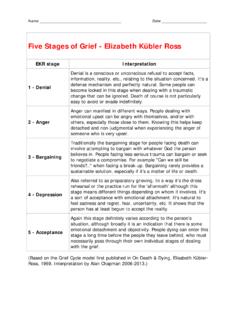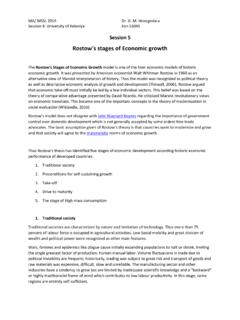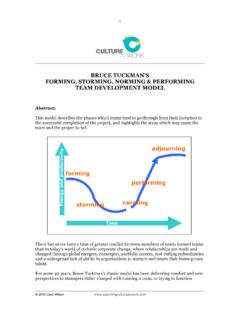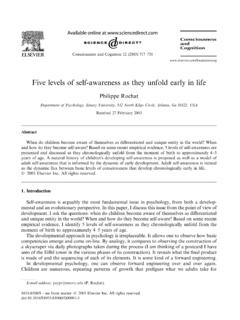Transcription of Five Stages of Incarceration - prisonfellowship.org
1 five Stages of Incarceration Understanding a prisoner s thinking and emotional state can help us minister to them more effectively. The five Stages of Incarceration denial, anger, bargaining, depression, acceptance are derived from the traditional Stages of grief outlined by American Swiss psychiatrist, Elisabeth Kubler-Ross. These Stages are not necessarily linear since people can flow in and out of them. But often a prisoner s behavior can be explained by where they are within these Stages . Like everyone, prisoners are in process, and are responding to what is happening in their lives. This stage begins when a person enters prison and lasts one to three yearsfor those with a sentence over 10 years.
2 For lesser sentences, they may be in denial fortheir entire sentence. Prisoners swing from emotions of rebellion to withdrawal and find ithard to believe they re really in prison. They tend to blame their situation on others, areoften callous toward victims, and have trouble comprehending the seriousness When faced with the reality that they can no longer deny the situation, aprisoner often becomes angry, may threaten lawsuits, express grievances, or bullyweaker people. Some join gangs. They may demand equal treatment but show littleregard for A sense of if only settles in. If only my dad had been around. If onlypeople would treat me fairly. They may resort to making promises and deals with Godor others.
3 They promise to mend their ways in exchange for favors. Often filled with guilt,frustration, and shame, it s hard for prisoners to believe God will Feelings of hopelessness and sadness sink in when it s clear that angeror bargaining don t work. Depressed prisoners tend to withdraw from others and focuson what they ve lost. One prisoner said, I wanted to sleep all the time. I wanted toescape my pain. Prisoners begin to face the consequences of their past actions. Theygrieve their loss of freedom and separation from loved Prisoners begin to accept that they re in prison for the long haul, whichcan make some emotionally numb. Others experience genuine soul searching andaccept some responsibility for their situation.
4 Attitudes are improving. They fall into aroutine and usually try to improve through reading, school, church, or work. A sense ofpeace moves in and many show a sincere desire to Zifer, Program Manager for Prison Fellowship s Academy program for men in Houston, and Joe Bruton, a graduate of PF's Academy and coordinator of Goodwill Industries Transitional Employment Opportunities program in Arkansas, provided some helpful tips for in-prison volunteers. Ron Zifer advised: First, don t put them down. They have to be gently guided to acknowledge they are notvictims and their actions had consequences. Prison Fellowship , five Stages of Incarceration | 2 Encourage them that help and hope are available in Christ.
5 First comes transformation of the mind. Jobs, skills, and housing will fall into place later. Joe Bruton added: Volunteers should built rapport and trust. Validate the prisoner s feelings and frustrations. Healing comes by confessing our faults to another. Pray for them and let them tell their story. Help them see that some of our darkest times can be used for God's glory.









